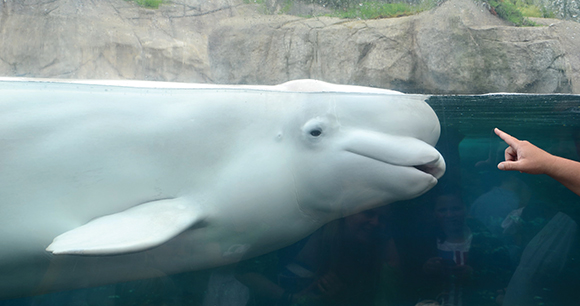AWI has previously reported on Mystic Aquarium in Connecticut importing five beluga whales from MarineLand in Canada. (See AWI Quarterly, winter 2020.) The National Marine Fisheries Service issued a permit in August 2020 under the US Marine Mammal Protection Act to allow the five whales into the country, but after a concerted effort by AWI and allies, NMFS restricted the permit to allow for research only, prohibiting the use of the animals for entertainment shows or breeding.

Between that time and May 2021, when five belugas were sent south, Mystic Aquarium requested an amendment to this permit. It wished to substitute three of the five whales described in the permit for three other whales, as the three original animals were too ill to transport. AWI considered this a major change to the permit. NMFS, unfortunately, deemed it minor and, thus, did not require the amendment request to undergo public review. However, the agency did post all of the related paperwork to the permit’s dedicated page on the NMFS website. AWI noted particularly that Mystic committed in writing to transporting only healthy whales.
Within three months of the import, Havok, one of the substitute whales, was dead. He was only six years old—still a juvenile. Mystic Aquarium reported that he had a preexisting condition—gastric ulcers—and had been treated for them almost from the time of his arrival in Connecticut. Mystic management insisted he had been stabilized at the time of the import, but transport is stressful for cetaceans, and ulcers do not react well to stress. One has to wonder how a whale with ulcers, stable or not, was deemed “healthy.”
Worse still, soon after Havok died, Mystic Aquarium reported that yet another of the substitute whales, a female named Jetta, was ill. According to the aquarium, she had been under treatment for an unspecified condition for weeks, at times “gravely ill” and at other times improving. While it is unclear whether Jetta’s condition was preexisting or developed since arriving at Mystic, a spokesperson for the facility stated to the media that, given the poor conditions at MarineLand, it would not be surprising to learn that all the belugas there had preexisting conditions. This startling comment certainly suggests that Mystic’s commitment to import only healthy whales was doomed to failure from the outset.
When three marine mammals are imported in place of three others too ill to transport, and one of the substitute whales subsequently dies while another falls seriously ill, it becomes evident that, under current standards, the veterinary assessments required for entry of live wildlife into the United States are seriously lacking. How did a whale with a potentially fatal preexisting condition get a pass at the border when the permit holder had made a written commitment to import only healthy animals?
AWI is following up with all involved agencies to address procedures related to live wildlife border crossings in order to safeguard marine mammals in trade.